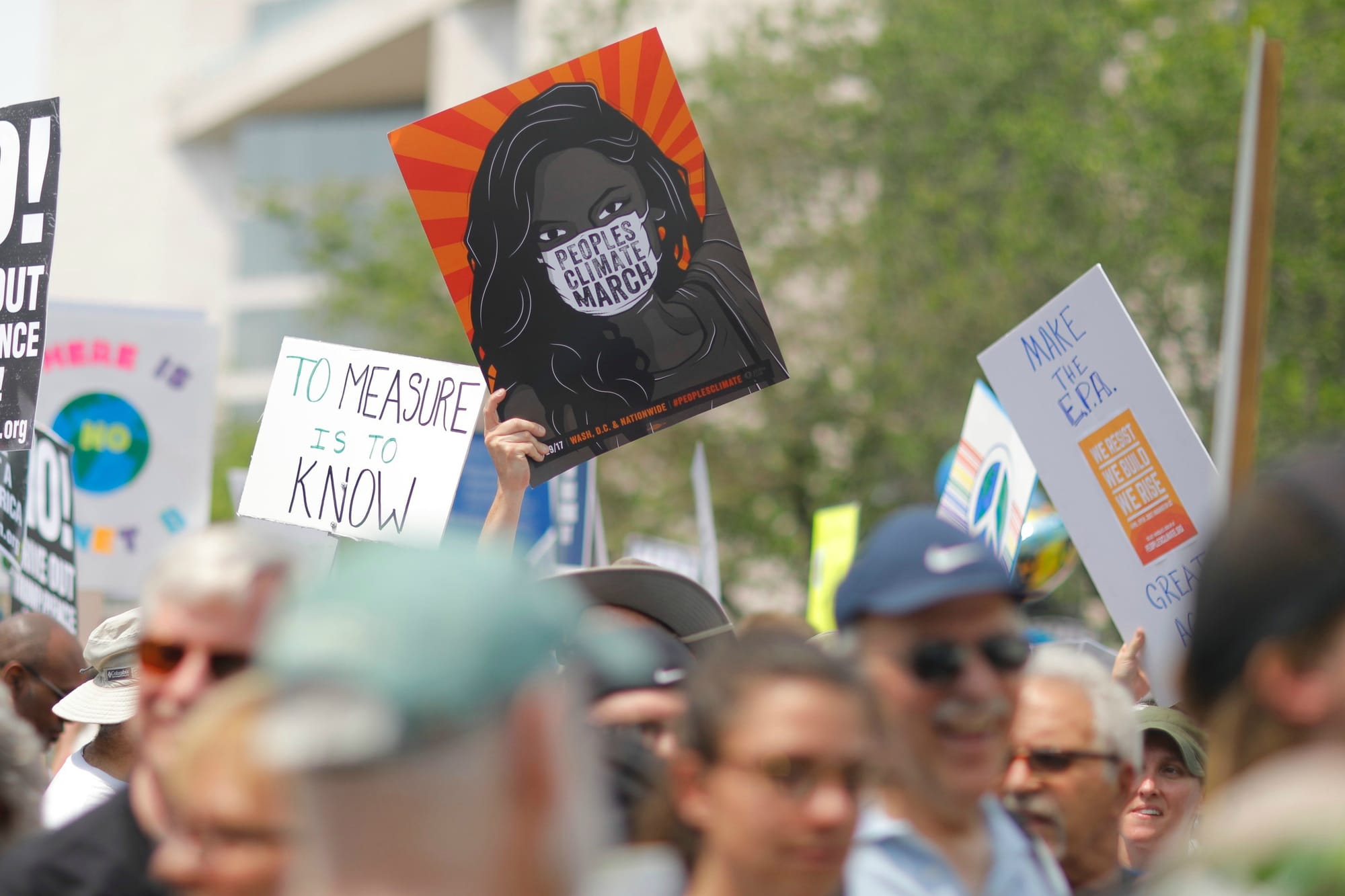Climate Change: The Immigration Issue You Didn’t Know About
by Abre' Conner
Across the country, people of color are negatively impacted by climate change at higher rates. But the Trump Administration has continued to ignore the obvious signs that climate change has a domino effect across the world and it is a dire mistake. While we may feel the impacts of climate change with extended winter months or increased rainy seasons, in certain countries like Honduras and other Central American countries, people are fleeing to the United States because of the economic impacts of climate change in their home countries. Now is the time for us to call on our local and state leaders to acknowledge the dramatic impacts of climate change and demand climate justice across the world.

The Trump Administration has slowly chipped away at many of the climate justice policies that were put in place in the past. According to the U.S. Government Accountability Office (GAO), climate change is on the High Risk list report. This report outlines programs and operations that are vulnerable to fraud, waste, abuse, and mismanagement, or that need transformation. Rachael Cleetus of the Climate and Energy Program at the Union of Concerned Scientists (UCS) stated that financial exposure regarding climate change “will continue to grow unless it acts—and acts quickly—to invest in climate resilience and curb carbon emissions.” Notably, the GAO reported that climate change policies, programs, and operations is an area where the Administration has regressed since the 2017 report. Additionally, the Trump administration rescinded guidance to have the federal government consider climate change. We cannot be complicit in allowing this to continue.
We have also seen that the current Administration has taken a strong stance against immigration policies that demonstrates simple human kindness and vehemently fights to keep unconstitutional policies in place that separate families. According to the Internal Displacement Monitoring Centre, since 2008, an average of 26.4 million people have been displaced from their homes because of extreme weather disasters every year. Additionally, when individuals who rely on the climate within their countries to make a living suffer the impacts of climate disasters, they no longer have means to a steady income, and look to other places where they believe there are more opportunities, like the United States. Thus, they seek refuge here. And climate disasters and bad climate change policies are in fact a likely cause for millions of individuals seeking refuge in the United States and the current Administration’s decision to deprioritize and, in some instances, eliminate decent climate change policies directly impact how these disasters materialize in migrants’ home countries. And as usual, people of color are left to bear the brunt of poor environmental justice policies. Indeed, a clear majority of the countries that have disproportionately felt the backlash of stricter immigration policies have large populations of Black and Brown people.
The overall theme for Earth Day this year is to “Protect our Species” because nothing and no one exists in a vacuum. To me, this also includes understanding that ignoring environmental racism and climate injustice currently and will continue to disrupt our ecosystem in many ways. Now is the time for us to recognize that environmental issues are human rights issues and our actions today can be the catalyst for preservation or destruction.
If the federal government continues to ignore these impacts, our local leaders must be at the forefront of ensuring policies protect people. local elected officials can create state and local reports that outline scientific analysis on climate change in their region. Local elected officials near borders are key to finding ways to join in unity with protecting human life. This Earth Day, we must consider immigration issues as environmental justice issues. To be a part of the solution, we must band together and recognize that we all have a part to play in the conservation of human life.